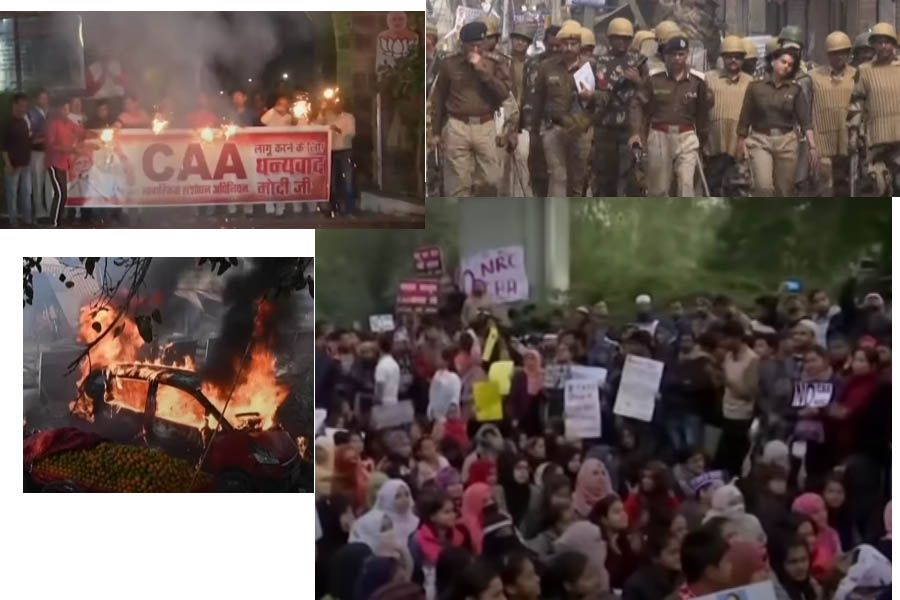
The recent enactment of the Citizenship Amendment Act in India has ignited a firestorm of controversy and unrest across the nation. The law, which grants citizenship to immigrants of religions other than Muslims, has been met with accusations of promoting Hindu supremacy and fostering discrimination.
Central Home Minister Amit Shah, a key figure in the ruling Bharatiya Janata Party (BJP), has announced the implementation of the new rules, hailing the move as a fulfillment of Prime Minister Narendra Modi's promise to religious minorities. According to Shah, the Citizenship Amendment Act 2024 will offer citizenship to minority refugees from neighboring countries like Pakistan, Bangladesh, and Afghanistan who have faced religious persecution.
The law specifies that Hindus, Sikhs, Buddhists, Jains, Parsis, and Christians who arrived in India from these countries before December 31, 2014, will be eligible for citizenship. However, the exclusion of Muslims from this provision has sparked widespread condemnation and accusations of religious discrimination.
Opposition to the Citizenship Amendment Act has been particularly fierce in states with significant Muslim populations. West Bengal Chief Minister Mamata Banerjee has strongly criticized the law, warning against its implementation and asserting that it undermines religious tolerance and diversity in the country. Banerjee accuses the BJP of exploiting the law to polarize politics and incite unrest, questioning the timing of its implementation before elections.
Protests against the Citizenship Amendment Act have erupted in various parts of the country, with particularly strong opposition in eastern states such as Assam, Meghalaya, Manipur, and Tripura. These states, which share borders with Bangladesh, have seen a surge in opposition due to concerns about the impact on both Muslim and Hindu communities living there.
The BJP's push to implement the citizenship law has been met with resistance from various quarters, including agricultural and youth organizations, student groups, and leftist and democratic movements. Despite attempts to pass similar legislation in the past, including an amendment in 2016, the Citizenship Amendment Act has faced significant backlash and condemnation.
As the controversy surrounding the law continues to escalate, questions about its constitutionality and implications for religious minorities remain at the forefront of public discourse. The implementation of the Citizenship Amendment Act has reignited debates about citizenship, identity, and religious freedom in India, underscoring the deep divisions within the country's diverse society.
Message To The Readers:
Controversial Legislation: The Citizenship Amendment Act enacted by the Indian government grants citizenship to immigrants of religions other than Muslims, sparking accusations of promoting Hindu supremacy and discrimination against Muslims.
Opposition and Protests: The law has faced strong opposition, particularly in states with significant Muslim populations, where protests have erupted against what is seen as an infringement on religious tolerance and diversity.
Political Criticism: Opposition leaders, including West Bengal Chief Minister Mamata Banerjee, have criticized the BJP government for exploiting the law to polarize politics and incite unrest, questioning the timing of its implementation ahead of elections.
Constitutional Concerns: The exclusion of Muslims from the citizenship provision has raised questions about the law's constitutionality and its implications for religious minorities, reigniting debates about citizenship, identity, and religious freedom in India.
Thank you for reading: globalpostheadline.com | If you want to advertise your Company, Events, Movies, Products, Hotels, Travel Packages Let us know